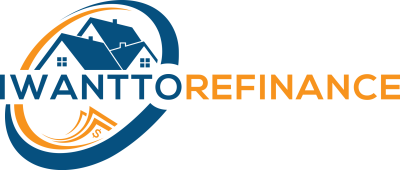Unleashing the Potential of Home Equity Loans
Key Takeaways:
- Home equity loans are installment loans with fixed interest rates that utilize your home equity as collateral.
- Careful consideration should be given to the best uses of a home equity loan, such as suitable investments, long-term purchases, and debt consolidation.
- Home equity loan terms typically range from 5 to 30 years, and the loan amount depends on the lender's maximum loan-to-value (LTV) ratio.
- Home equity loan interest rates are higher than purchase loan rates due to the increased risk to lenders.
- Closing costs, including appraisal fees and attorney fees, may be associated with home equity loans.
- Comparing home equity loans to cash-out refinancing can help determine the most suitable option.
Table of Contents:
1. Introduction to Home Equity Loans
2. Best Uses for a Home Equity Loan
3. Less-Great Uses for Home Equity Loans
4. Understanding Home Equity Loan Terms
5. Calculating the Borrowable Amount with a Home Equity Loan
6. Factors Affecting Home Equity Loan Interest Rates
7. Exploring Home Equity Loan Closing Costs
8. Home Equity Loan vs. Cash-Out Refinance: Choosing Wisely
9. Principles for Tapping into Home Equity
10. Conclusion: Harnessing Home Equity with Care
Introduction to Home Equity Loans
A home equity loan is a type of installment loan that utilizes the value of your home as collateral, providing access to funds at a lower interest rate than unsecured loans.
Best Uses for a Home Equity Loan
Home equity loans offer flexibility, making them suitable for various purposes. However, it's crucial to use the funds wisely. Consider suitable investments, long-term purchases, and debt consolidation to make the most of your home equity loan.
Less-Great Uses for Home Equity Loans
Home equity is a valuable asset that should be utilized for financially beneficial purposes. Avoid using home equity loans for non-tangible expenses like expensive vacations, weddings, or shopping trips. Shorter-term financing options may be more suitable for these expenses.
Understanding Home Equity Loan Terms
Home equity loans typically have shorter terms compared to personal loans or auto financing. The loan term impacts the interest rate and the total interest paid over time.
Calculating the Borrowable Amount with a Home Equity Loan
The amount you can borrow with a home equity loan depends on the lender's maximum loan-to-value (LTV) ratio. By estimating your home's value and subtracting your current mortgage balance, you can determine the maximum loan amount available.
Factors Affecting Home Equity Loan Interest Rates
Home equity loan interest rates are higher than purchase loan rates due to the increased risk to lenders. Factors such as credit scores, debt-to-income ratio, and loan-to-value ratio influence the interest rates offered.
Exploring Home Equity Loan Closing Costs
Home equity loans may involve closing costs, including appraisal fees, credit report fees, attorneys' fees, and document preparation fees. Origination fees may also apply. Understanding the total costs and comparing loans based on the annual percentage rate (APR) helps assess affordability.
Home Equity Loan vs. Cash-Out Refinance: Choosing Wisely
While both options tap into home equity, cash-out refinancing involves replacing the existing mortgage with a new loan, while a home equity loan is an additional loan. Consider your cash needs, interest rates, and associated fees when deciding between the two.
Principles for Tapping into Home Equity
Borrowing from home equity requires careful consideration. Ensure that the funds are used for the right reasons, match the loan term with the life of the purchase, and compare offerings from multiple lenders to secure the lowest-cost financing.
Conclusion: Harnessing Home Equity with Care
Home equity can be a valuable resource for building wealth.
Borrow responsibly, respect the asset, and make informed decisions to make the most of your home equity loan.


